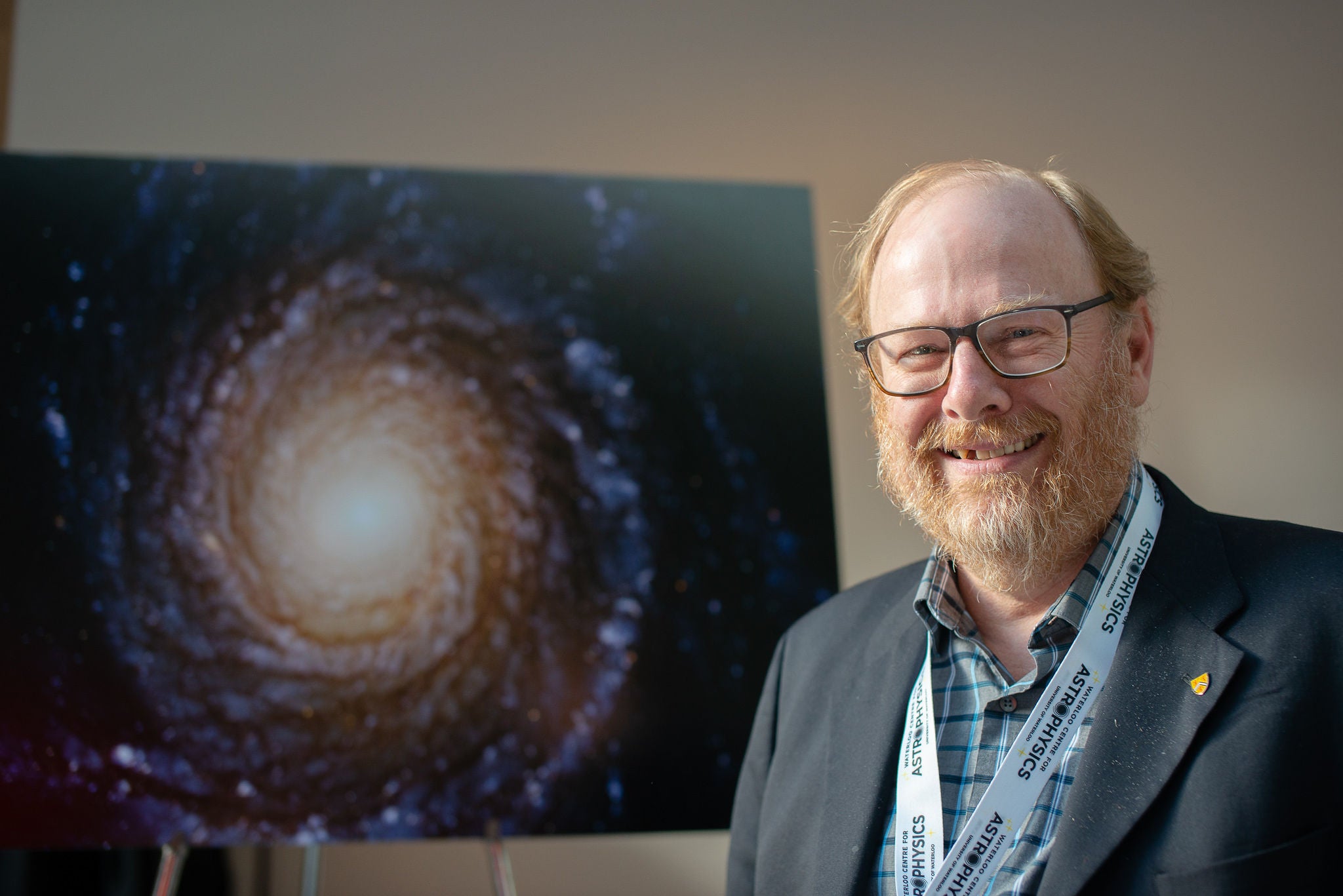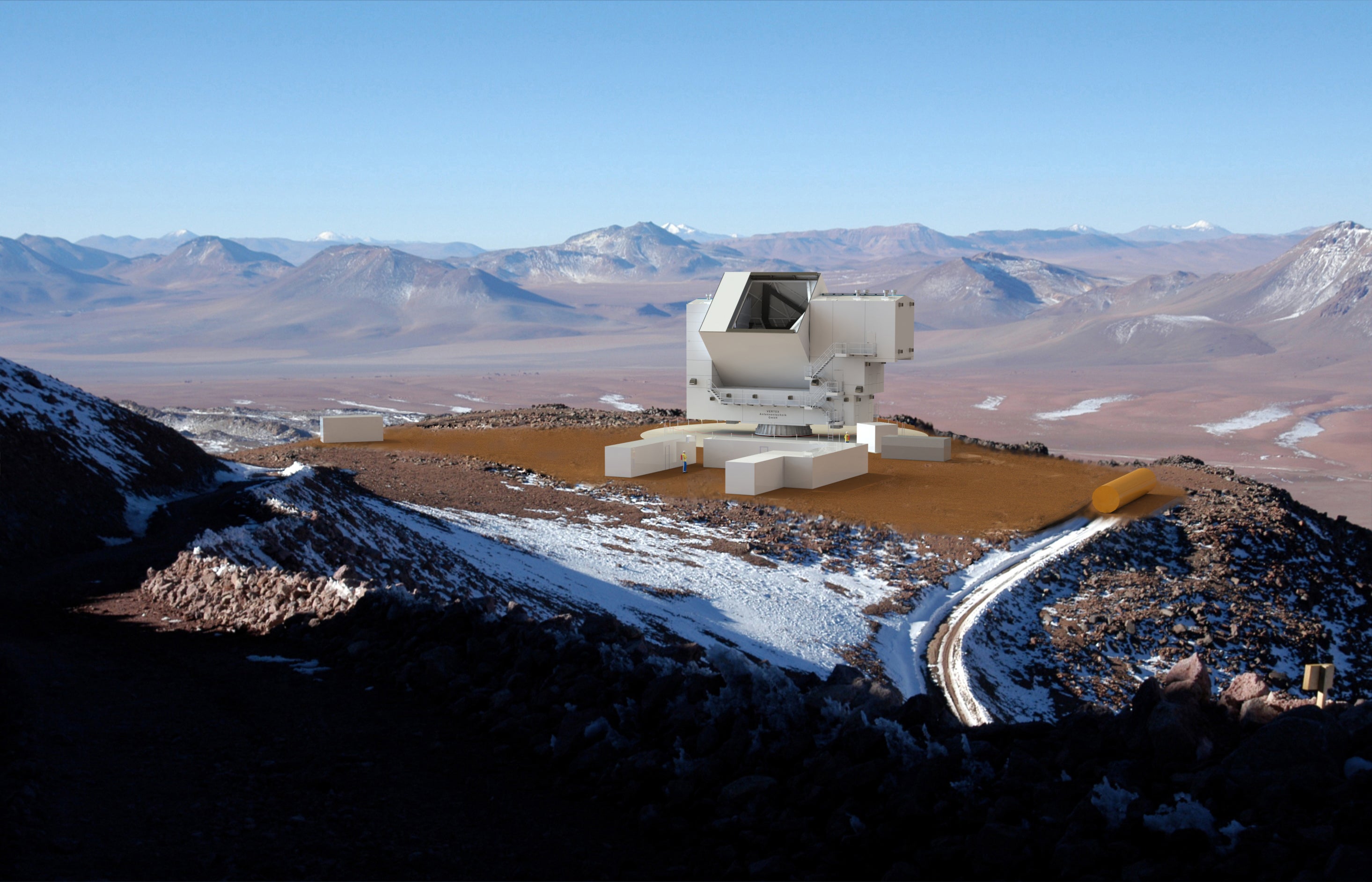A team of Canadian researchers led by University of Waterloo professor Michel Fich have been awarded $4.9 million in funding from the Canada

Foundation for Innovation to build a next generation telescope.
With an innovative wide-field design optimized to measure light from the earliest moments after the Big Bang, the Fred Young Submillimeter Telescope (FYST), located in Chile, will give astronomers insight into how the stars and galaxies in our universe formed.

“This funding secures Canada’s position within the international consortium developing the FYST,” said Fich, the Canadian lead of the project. “This project is a natural next step for the Canadian submillimeter astronomy community, and will enable Canadian scientists to continue their leading role in discoveries in topics such as the first galaxies and black holes, dark energy, dark matter, neutrino mass, and gravitational wave physics.”
High in the mountains of Chile, near the Atacama desert, is one of the driest locations to put a telescope on Earth. FYST makes observations in the submillimeter radiation range, which is easily distorted by water vapor in the Earth’s atmosphere, so that a very high and dry site is needed.
Unlike visible light, submillimeter radiation typically arises from clouds of dust and molecules surrounding distant supermassive black holes and starbursting galaxies and also regions where stars and planetary systems form. Therefore, in addition to studying these regions, observations from FYST will also play a critical role in learning about the Big Bang, by removing the emission from these clouds and cleaning up our observations of the Cosmic Microwave Background, the oldest light in the universe.
“We’re exploiting sophisticated state-of-the-art cameras and precise mirror surfaces from a fantastic site,” said Martha Haynes from Cornell University and Chair of the CCAT Board of Directors. “It is hard to imagine that we won’t discover new categories of fascinating cosmic sources.”
The Fred Young Submillimeter Telescope is part of the CCAT-prime project, an international collaboration between Cornell University; the Canadian Atacama Telescope Consortium, led by the University of Waterloo, and including Dalhousie University, University of Alberta, University of British Columbia and University of Toronto; and a German consortium of the University of Cologne, the University of Bonn and the Max Planck Institute for Astrophysics.
“We are glad to see that our long-term partners in CCAT-prime are finally on secure financial grounds,” says Juergen Stutzki, Universitaet zu Koeln, as lead of the German CCAT-prime consortium. “Their expertise in several of the science areas of CCAT prime has been and will be a welcome and necessary enrichment for the project."
This grant was announced by Prime Minister Justin Trudeau and supported by the Honourable François-Philippe Champagne, Minister of Innovation, Science and Industry on March 3, 2021. It is one of six projects in the Faculty of Science to receive funding, totalling $17,272,134 in funding.